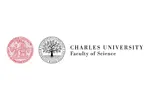

Czech Republic (the)
Visit course webpageProject summary
av大平台, composed of a plethora of layers, physical or not, made by humans or nature, are entities that, due to their complexity, tend to be abstracted and oversimplified when being analysed.
However, they can be conceptualised as complex adaptive systems, with many layers being intertwined with the others. When focusing on a layer of urban form - the physical built-up aspects - reflecting the structure of cities and an environment within which all the other components take place, the field of urban morphology tends to simplify the variety into a set of well-known archetypes. This project will move beyond the archetypal conceptualisation of urban form and apply data-driven techniques to explore the ecology of urban form.
In many aspects, ecological communities are similar to cities as both are spatially constrained complex adaptive systems. Where urban morphology struggles to analyse the variety of urban form and opts for archetypes, community ecology offers a theory and a robust set of advanced methods for analysing such systems that can be brought to urban morphology. The core of this project will focus on understanding the ability of community ecology to describe the physical environment of cities and uncover underlying patterns forming the places we live in. The project's scope will be primarily methodological research leading to the development of new techniques, potentially affecting both urban morphology and community ecology, and creating tools to use them.
This project will take the form of an open, data-driven, multidisciplinary research done in cooperation with the Department of Social Geography and Regional Science (Martin Fleischmann) and the Department of Ecology (David Ho?
Learn more about Bridging urban morphology and community ecology to study structure, organisation and evolution of cities, PhD - at Faculty of Science, Charles University
Visit course webpageContact Faculty of Science, Charles University to find course entry requirements.
This text facilitates quick navigation of the various types of scholarships but does not provide a full list of rules and policies regulating this field. The granting and payments of scholarships is governed primarily by the Scholarships and Bursaries Rules of Charles University (cuni.cz/UKEN-727.html), the Rules for Granting Scholarships at FSc, and the relevant measures issued by the Dean (natur.cuni.cz/fakulta/studium/bc-nmgr/predpisy-a-poplatky/stipendia; Czech only).
Students may obtain the following scholarships:
Certain scholarships are granted to students automatically (without student applications), whereas others are granted further to an application (electronic or paper, depending on the type of scholarship). Bursaries are neither taxed nor included in stated income. You can find answers to frequently asked questions regarding scholarships on the Faculty website (natur.cuni.cz/fakulta/studium/helpdesk/faq-stipendia; Czech only).
For more information check our dedicated website.
There are 136 other courses listed from Faculty of Science, Charles University. A selection of these are displayed below:
A postdoctoral position to study thermal effects in landslides Postdoc
Faculty of Science, Charles University
Find out moreActivation of STING signaling in tumors associated with human papillomaviruses PhD
Faculty of Science, Charles University
Find out moreAdvanced Electron Microscopy Techniques for the Characterization of Tunable Zeolitic Architectures PhD
Faculty of Science, Charles University
Find out moreAmphiphilic Peptidomimetics Containing Metallacarboranes as a Design Strategy for Future Antibiotics PhD
Faculty of Science, Charles University
Find out moreSee other universities in Prague
Find out more about studying in Czech Republic (the)